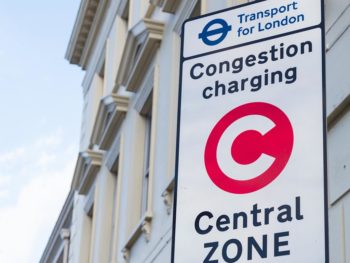The rejection of an expansion to the London Congestion Charge has been welcomed by Logistics UK as it also calls for logistics firms to be exempt from the current increased fares and operating times for the zone.

This weekend saw Transport for London secure an “eleventh-hour” funding package to keep running until March 2021, but without the need to agree to a much-criticised Congestion Charge expansion.
Although the c.£1.8bn funding requires the current temporary changes to the Congestion Charge to be maintained as a “continuing response”, ministers back-tracked on calls for the zone to be extended to the North and South Circular.
The conditions of the latest bailout also ensure that free travel for the under-18s and over-60s is protected and averts higher increases in TfL fares. The Government had wanted TfL fares to rise by more than the previously agreed RPI+1 per cent.
The Congestion Charge had already gone up to £15 in June, while the hours of operation were increased and the residents’ discount was later closed to new applicants.
Logistics UK has welcomed the news that the planned expansion of the zone will not go ahead as a condition of the bailout package; the organisation had warned last week it would be a significant blow to businesses.
Chief executive David Wells said: “The Government’s decision to listen to the concerns of Logistics UK and its members – as outlined in my letter to Rt Hon Grant Shapps MP, the Secretary of State for Transport – and refrain from expanding the London Congestion Charge is a huge relief to logistics businesses, many of whom continue to struggle financially and operationally as a result of the Covid-19 crisis.”
But the organisation is also urging the Government to reconsider whether logistics activity should be subject to the temporary increase in the fee and longer operating hours.
“With little alternative to using lorries and vans to keep London stocked with all the goods the population needs, it simply amounts to an additional tax on those charged with supporting the capital during the pandemic, and beyond,” said Wells.

